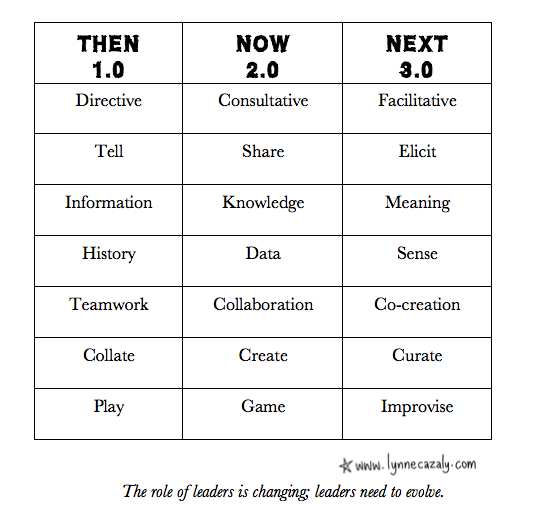"Don't tell ME what to do"
 Friday, February 19, 2016 at 11:53AM
Friday, February 19, 2016 at 11:53AM  The days of a leader -- anyone -- being directive and telling people what to do 24/7 are gone.
The days of a leader -- anyone -- being directive and telling people what to do 24/7 are gone.
Leadership has shifted to being more consultative.
And it will evolve further to leaders being facilitative, where the leader is able to draw information, ideas and insights out of the team rather than telling, instructing or adding their own thoughts to the team.
From a childhood memory of being told to 'clean up your room' to adulthood experiences of being told to 'doing this thing in this way', we are self-directed human beings and we don't really like being told what to do.
So why are leaders STILL trying to poorly parent their teams and tell them what to do?
From sharing to eliciting

The telling role of leaders is shifting from just sharing information where the new strategy or project is 'rolled out' in a darkened auditorium or increasingly cliched 'Town Hall' event (that people THINK is collaborative) to one where the onus is on the leader to elicit information.
They draw information out through communication, questioning and eliciting techniques.
This is what builds engagement. Posters, videos, promotional products and pot plants don't build engagement.
Humans create engagement with other humans.
Teams are co-creating
Changes are afoot in some teams where they're moving from teamwork to collaboration and now shifting and evolving further to people co-creating and working with customers, clients, colleagues and others from diverse fields to make and design the stuff they do.
Leaders are increasingly needing the capabilities of facilitators, to prime the environment, set up a process for engagement, run that process and honestly and authentically gather the input and contributions from their team.
Lip service sucks
Saying you're using facilitation skills but you're not is clunky and out of touch.
Increasingly, consultants, business analysts, project managers, middle level team and people leaders as well as those new to managing and leading a team are seeing and experiencing the benefits of being able to engage with a group or team, draw information from that group, and help them collaborate to achieve an agreed outcome.
And things are changing for experienced leaders too: leadership styles continue to evolve and shift.
Diversity needs it
There is a mix of diverse ages and cultures on every team, and finding ways of engage them and work with them is up to the leader, not the team.
The days of simply ‘telling’ people in a team what to do are fading; people need to be engaged, their capabilities harnessed and the group given the environment, situation and processes to help them work together and collaborate.
Today's leader is a facilitator.


















Reader Comments